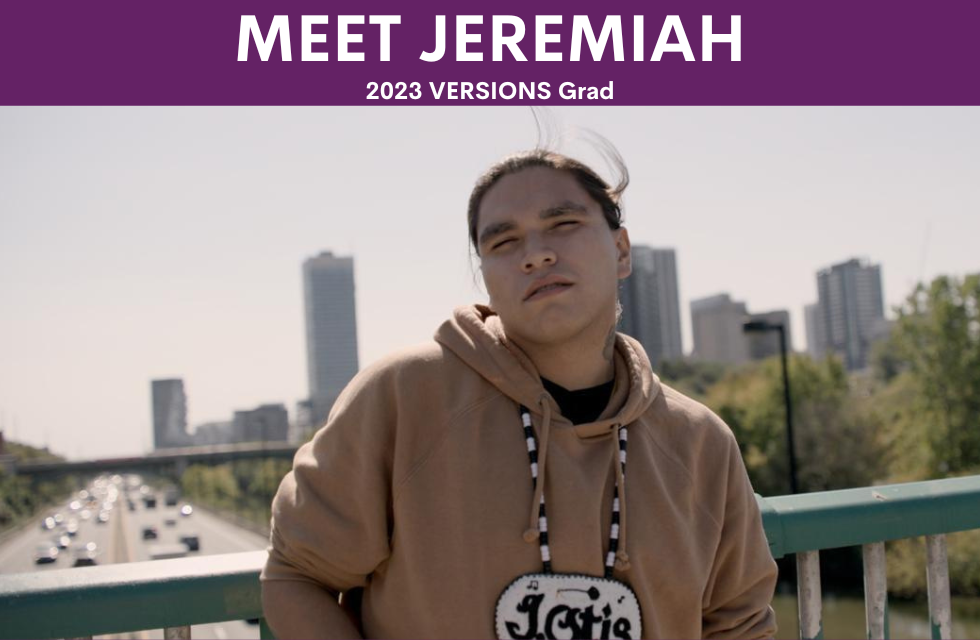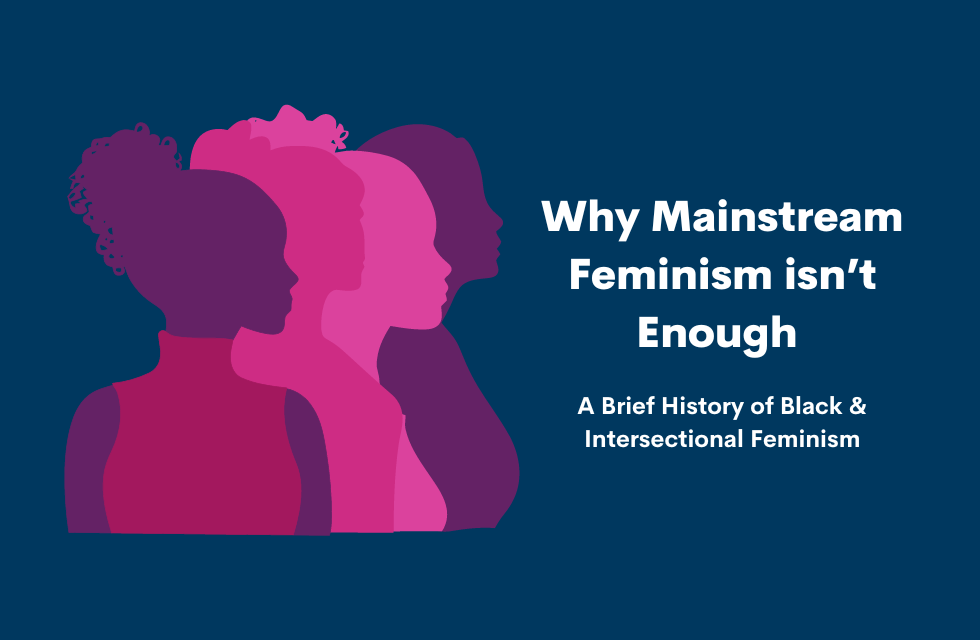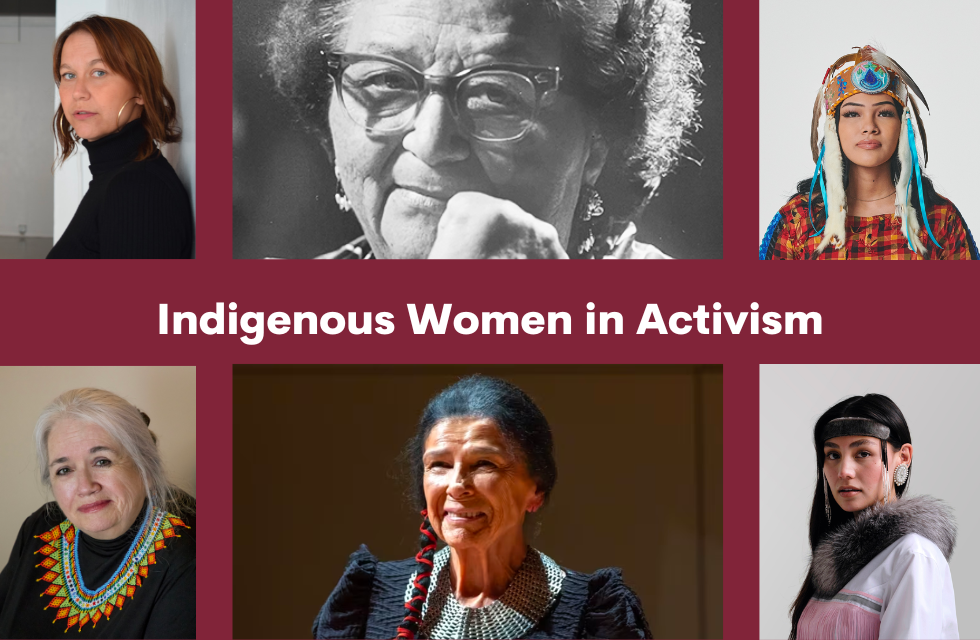In this series, we're highlighting our VERSIONS Alumni. You'll learn about their transformative journeys with…

Breaking The Cycle: Understanding and Healing Intergenerational Trauma
Recently, people have become fascinated with companies that can track our ancestry and DNA. Of course, it’s exciting to see our lineage and better understand our personal history. But how often do we wonder about how their lives impact us today? Or how the trauma our ancestors experienced four, five, or even seven generations ago affects us and generations after us?
You likely already know that your parents influence both your physical appearance and behaviours. In addition to that reality, every single one of your ancestors’ experiences and choices (or lack of choices) resulted in you. You’re the product of dreams thought up centuries before you took your first breath. But it isn’t necessarily as euphoric as it sounds.
Like many of our societal issues, colonialism has significantly influenced the generations of today. Not just from a geographical perspective but also from a trauma perspective. We know the systemic injustices many underrepresented groups experienced generations ago didn’t simply stop when laws changed, and neither did the harm inflicted upon them. Residuals of past atrocities show up both in our current behaviours and biology.
What is intergenerational trauma?
Trauma doesn’t just impact the person who experiences it–it can hold tight through ancestral lines and show up decades, even centuries, later. The American Psychological Association defines intergenerational trauma as “a phenomenon in which the descendants of a person who has experienced a terrifying event show adverse emotional and behavioural reactions to the event that are similar to those of the person himself or herself.” This trauma may result from one victim’s experience (such as abuse, violence, etc.) or an entire group of people. When whole cultural groups experience trauma and are victims of systemic oppression, this is a specific branch of intergenerational trauma called historical trauma.
The term “intergenerational trauma” was first coined after scientists conducted a study on Holocaust survivors in 1988. Researchers found significant impacts on the mental health and cortisol levels of the children of survivors despite never having been through the Holocaust themselves. These children experienced the effects of genocide, displacement, and various forms of trauma years after their parents survived the initial atrocities.
Since then, we have seen intergenerational trauma impacting various cultures and communities, including descendants of refugees and Black and Indigenous populations. Specifically, descendants of Indigenous peoples forced to attend residential schools and African Americans who have been the victims of generations of slavery, segregation, and institutionalized racism are most likely to experience this type of cyclical trauma. We can point fingers at colonialism for inciting the racialized discrimination and systemic oppression we still see today.
While the exact event that triggers intergenerational trauma might be difficult to pinpoint, residuals are often seen in family patterns. It’s generally agreed that children absorb their parents’ unresolved tension, feelings, unhealthy coping mechanisms, and trauma. The cycle starts with the initial agonizing event but then perpetuates through victims’ learned behaviours and parenting styles–resulting in transgenerational impacts.
But it’s more than just a child’s environment that determines the extent to which the trauma will influence their life (and if it’ll impact generations to come); it can also be seen on a biological level.
What’s in your genes?

An area of science called epigenetics studies how your (and your parents’) experiences and environment influence gene expression. Studies continue to explore this phenomenon, but data suggests that trauma from past generations can alter gene expressions generations later. And a 2018 review revealed a link between intergenerational trauma and heightened levels of depression. The trauma inflicted from the past is not something to simply “get over;” it’s quite literally ingrained in your biology.
Symptoms of Intergenerational Trauma
Like most things, there isn’t a “one size fits all” answer or approach to the question, “Do I have intergenerational trauma?” And because it’s almost impossible to trace the exact moment the trauma took root, we can only look at the symptoms. And even then, the symptoms vary depending on the trauma and the individual.
In general, trauma generates unhealthy coping mechanisms that are passed down as learned behaviours (as well as some biological factors, as we explored in the above section). They quickly become normalized, but these deceptively standard coping mechanisms are often identified by symptoms (which are sometimes mistaken for other disorders) such as:
- Anxiety
- Depression
- Issues with self-esteem
- Denial
- Substance abuse
- Identification with death
- Unresolved grief
- Lack of trust of others
- Anger
- Irritability
- Inability to connect with others
It’s difficult to know the extent of trauma’s impact on you or your family, even with an extensive list of symptoms. Identifying intergenerational trauma takes introspection, open discussions, and research–however, we know that history and science have historically been written by oppressors, making it much more challenging to find trusted information and guidance on this topic.
If you embark on self-discovery and healing (especially as it relates to intergenerational trauma), it’s important to be mindful that it’s a long and often complex journey.
Healing Intergenerational Trauma
 So, once you’ve identified symptoms, then what?
So, once you’ve identified symptoms, then what?
One of the main understandings in medicine is that just because you treat the symptoms of a disease doesn’t mean a patient is healed. Symptoms are bound to recur without addressing the core issue(s) directly.
In that same sense, healing intergenerational trauma involves more than simply addressing your symptoms. But make no mistake; the path to healing is a difficult journey. It takes courage, vulnerability, and facing the past head-on to confront and overcome generations of hurt.
It’s also important to acknowledge the fact that there are numerous barriers to breaking this cycle, including financial limitations and stigmas. Mental health and wellness stigmas often prevent people from seeking the help they need–especially in the Black community, where there’s a (slowly evolving) culture of hyper-independence and medical mistrust.
Additionally, some people may actually choose not to embark on a healing journey because the trauma is too much to handle. And there’s no shame in that. This is an example of colonialism’s brute strength–it grips us from generations away.
But for those of you who feel ready to face the repercussions of colonialism head-on, take a look below:
- Get talking: Healing begins with a conversation. Creating space within your family to discuss the trauma they’ve experienced (directly and indirectly) will arm you with the information needed to understand the extent of harm. But be aware that these conversations may be hard to initiate and may not go as planned. We can’t force people to face their trauma–they need to do it on their own time.
- Analyzing the impact: Once it’s all on the table, it’s time to look at how trauma has impacted all of you. Ask questions like:
- What sort of impact did the trauma have on the person(s) who experienced it directly? How did that shape their behaviours and life existences? How might the past trauma impact generations to come?
- Bring in professionals: You can only get so far on your own. Trying to unpack trauma can be complicated and heavy, so enlisting a professional to help guide and support you might be a great option.
- Culturally specific methods: Some communities, including many Indigenous communities, have their own methods of addressing deep-rooted trauma, including sweat lodges, healing lodges, fasting, and more. Chat with people in your community who may have more information about alternative healing methods.
You can see each of these steps to healing have “support” as the common theme. Especially in the case of historical trauma, the initial harm was likely inflicted on a community of people, and it can often take the strength of a community to heal.
Your ancestors may have gone through unimaginable horrors that you’ll never directly experience, but that doesn’t mean you’ve escaped the consequences. And although a significant part of intergenerational trauma is learned, the fault lies in the hands of the initial abusers. Colonialism, in particular, uses our bodies as a tool of oppression to perpetuate generations of hurt and to influence lives long after the late enslaver died and the last residential school closed.
Remember, the cycle of harm didn’t start with us, but it can end with us.




